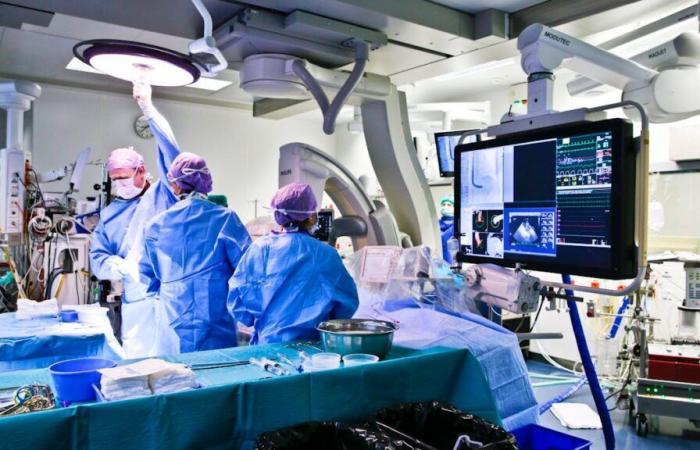The objective is to reduce health costs in Switzerland, and the opposite is happening in certain hospitals. Several German-speaking media highlighted, on Monday, practices allowing comfortable margins to be achieved by exploiting legal vagueness. The “Tages Anzeiger” talks, for example, of heart implants purchased for 60 francs. by a German-speaking hospital and ultimately billed nearly 1,500 francs. to health insurance.
The “CH Media” group, for its part, shows that a relocation of radiology analysis abroad has also allowed establishments to make money in the process (read below). In the case of implants, the extent of these overcharges is not yet known. But health insurer circles are keeping an eye on things and are investigating “several suspicious cases”.
How did we get here? Parliament decided in 2022 to encourage hospitals and medical practices to negotiate discounts when purchasing equipment. On paper, the greater the discount obtained, the more the buyer is rewarded: those who have joined the contract can keep up to 49% of the discounts in the outpatient area, provided that this money is used for the improvement of the quality of treatments.
This should, in theory, reduce certain costs. However, the medical equipment market has a “catalogue” price which is rarely the one charged in reality. Some hospitals have used this “catalogue” price to claim greater discounts than those obtained on the market and thus benefit from a greater reward.
The “Tages-Anzeiger” has obtained documents which prove that the difference between the “catalog” prices and the actual sales prices can be up to 20 times lower. According to the newspaper, Hirslanden establishments are mainly in the crosshairs of insurance companies for having used this practice. A spokesperson for the private hospital group says checks have been undertaken to find out if any errors have been made.
Radio stations analyzed abroad
A system for outsourcing analyzes of x-rays, scanners and MRIs is also highlighted in the “Aargauer Zeitung”. In Switzerland, small clinics can send these types of results 24 hours a day to larger centers. But the latter would have the work done in other European countries, for less, then ultimately charge the prices charged in Switzerland. The Hirslanden group and the company Emergency Radiology Schueller are cited as participating in this relocation of teleradiology abroad. According to the Federal Office of Public Health, everything is regulatory, because “the legislation on radiation protection does not impose any obligation in this area”.






